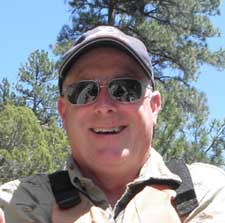

Lansing, Michigan – -(Ammoland.com)- A controversial black rhino hunt ( http://tiny.cc/81sx7w ) is set to be auctioned by the Dallas Safari Club (DSC) on behalf of the Government of the Republic of Namibia.
Fueled by typical emotion-driven rhetoric, the usual suspects, including the Humane Society of the United States (HSUS), oppose the hunt on the grounds that the animals are endangered.
On the other side, conservationists and biological scientists support the auction as a means to brighten the future of the prized African game species.
First a few facts are in order. The number one reason for the decline from around a million rhinos in the year 1800 to approximately 30,000 today is poaching. Rhino horn is one of the mainstays of Traditional Chinese Medicine, and thus has been responsible for the deaths of tens of thousands of rhinos. The question is not whether rhino horn actually has medicinal value; enough Asians believe it does, and therefore, its value is literally double that of gold.
Namibia’s Ministry of Environment and Tourism (MET) was established in 1990 and is responsible for the safeguarding Namibia’s environmental resources. Since 2004, with the support of scientists in the international Convention on Trade in Endangered Species, Namibia is authorized to sell up to five hunting permits a year. With selective hunting as a part of its comprehensive rhino conservation strategy, the country’s black rhino population has more than doubled since 1990.
DSC expects the permit to sell for at least $250,000, perhaps up to $1 million. All proceeds will be returned to Namibia for underfunded rhino-related projects such as anti-poaching patrols.
Did you catch that? All proceeds are to be returned to Namibia.
Contrast this with how HSUS uses its questionable tactics to line the pockets of its hierarchy.
HSUS CEO, Wayne Pacelle, raked in $395,000 in total compensation according to its latest tax return. In total, 38 people received over $100,000 in compensation from HSUS—up from 24 the previous year. HSUS put $2.9 million into its pension plan—significantly more than it made in paltry grants to support pet sheltering.
So, rather than paint the DSC with the same brush used on poachers, while lining its own pockets, wouldn’t it be philanthropic if HSUS leaders invested that money in anti-poaching efforts or in efforts to reduce the demand for rhino horns? (That’s Wayne’s argument against the DSC, by the way, directly from his blog.)
Amid a rash of well-documented death threats from animal-rights extremists, the DSC stopped giving media interviews until prudent security measures were in place. Dallas police were consulted, as was the FBI, which referred the case to a domestic terrorism team.
Ben Carter, DSC executive director. said, “We expected our announcement to surprise some people, but we didn’t anticipate that level of hate. People who see themselves as more evolved, and as beacons of compassion, were threatening to kill my children.”
“The good news, Carter adds, is that most people are rational and quickly change their minds about the rhino auction and hunt once they understand the facts.”
In 1994, the U.S. Congress established the Rhinoceros and Tiger Conservation Fund. Grants from this fund are used for anti-poaching efforts, habitat and ecosystem management, development of nature reserves, wildlife surveys and monitoring, management of human-wildlife conflict, public awareness campaigns and other conservation efforts related to rhino and tiger survival.
And, when it comes to management, results – not rhetoric – are the only issue at hand.
About Glen Wunderlich
Charter Member Professional Outdoor Media Association (POMA). Outdoor writer and columnist for The Argus-Press (www.argus-press.com) and blog site at www.thinkingafield.org Member National Rifle Association (NRA), Michigan United Conservation Clubs (MUCC), member U.S. Sportsmen’s Alliance (USSA), Quality Deer Management Association (QDMA), Commemorative Bucks of Michigan (CBM). Adjutant of Perry, Michigan Sons of Amvets Post 4064 and Chairman Perry (MI) Youth Hunt Extravaganza, a sanctioned event of Perry Sons of Amvets held the third weekend of September each year.
